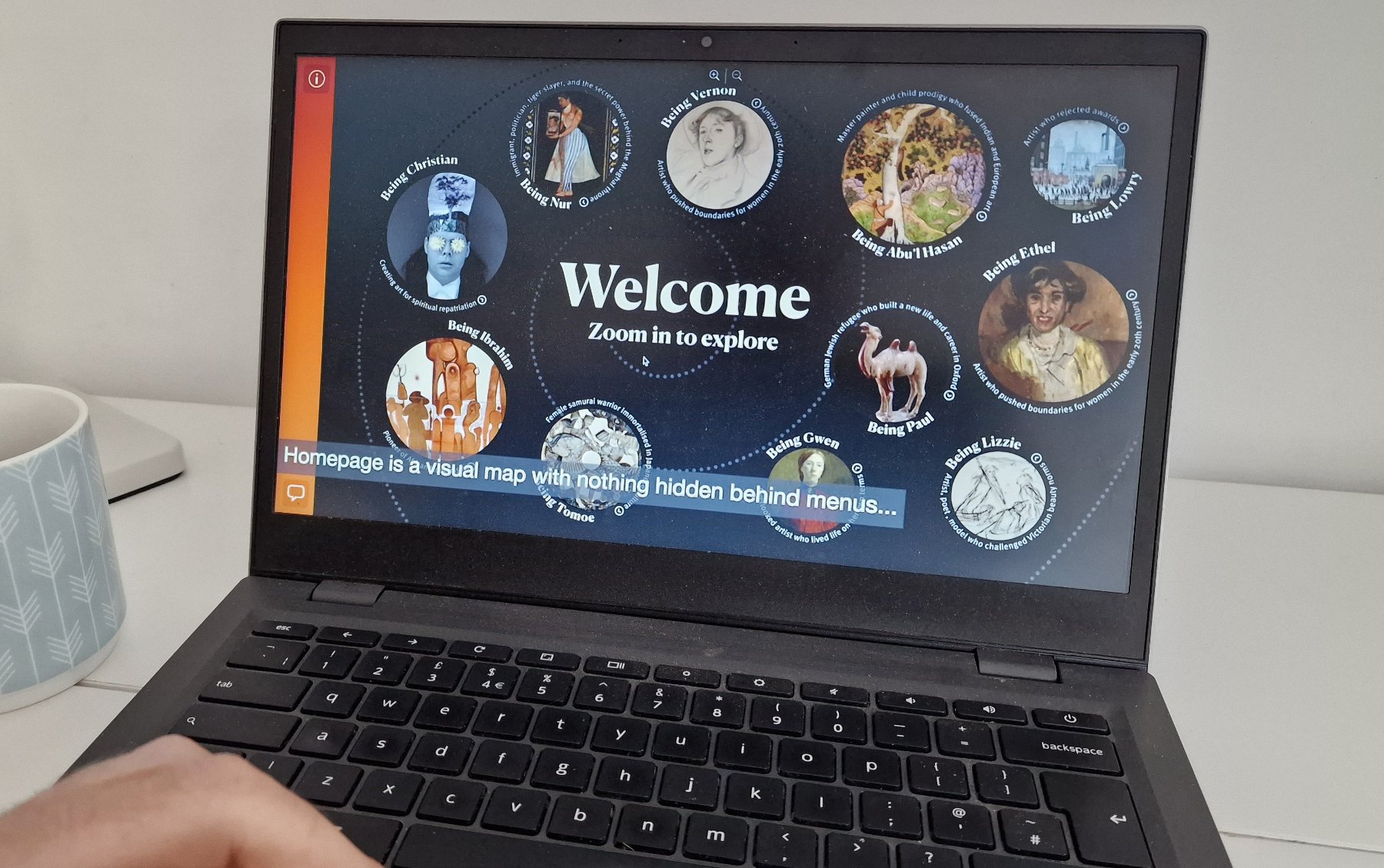
The Ways of Being website was co-produced with young people
Arts websites ‘reduce anxiety in young people’
Study finds first clear evidence that online engagement with arts and culture has a positive impact on mental health and wellbeing.
Online engagement with arts and culture can help to reduce anxiety and depression among young people, a study has found.
Academics from Oxford University co-produced a website alongside young people to act as a mental health intervention by interactively exploring the diverse human stories behind art and artefacts.
A randomised controlled trial (RCT) – considered the gold-standard trial for evaluating the effectiveness of interventions – found that both young people using the website, called Ways of Being, and a control group using a typical museum website experienced mental health improvements.
READ MORE:
- Government mental health strategy 'needs to include arts'
- National Centre for Creative Health to 'mainstream' arts in health and social care
"Although it is generally thought that engagement with culture and the arts is good for mental health and well-being, this RCT provides the first reliable experimental evidence lending support for online engagement for depression and anxiety in [young people]," a report on the research findings states.
Long-form stories
The Ways of Being website featured a menu page giving the choice of 11 diverse ‘stories’ into the life and works of artists.
These included American painter Ethel Sands, Christian Thompson, the first aboriginal person admitted to Oxford University when he began studying there in 2010, and Ibrahim El-Salahi, considered a godfather of African Modernism.
Once entered, these led into a long-form story which could be listened to or read interspersed with visual media and then further ‘deeper’ stories which were interconnected.
Alongside the stories was a comments tool that enabled participants to add their own viewpoint to a variety of viewpoints prepopulated during co-production, enabling participants to express their responses anonymously which were then redisplayed within the website.
The control group used the Ashmolean Website – a typical museum website owned by the Ashmolean Museum of Art and Archaeology at the University of Oxford – and were directed to a section created to be an online substitute for the museum visit and material curated by museum specialists with a focus on art movements and styles.
Unlike the Ways of Being website, the emphasis was on the objects themselves rather than human stories.
Impact
Researchers found a link between engaging in online arts and culture and mental health, with participants in both trial groups – made up of 16 to 24-year-olds – reporting a reduction in psychological distress at the end of the pilot study, despite it being conducted at a time of increased Covid restrictions.
In both groups, 24% fewer people reported clinically significant distress between the start of the pilot study and the intervention phase, which was sustained after six weeks.
Researchers found being able to access more diverse content through the Ways of Being platform was beneficial for specific groups, including ethnic minorities and young men.
Lead author Dr Rebecca J Syed Sheriff, Consultant Psychiatrist and Senior Clinical Research Fellow at Oxford University's Department of Psychiatry, said the results indicate that enriching online experiences with enhanced and diverse content may help to reduce mental health symptoms and protect against the evolution of a mental disorder and associated poor outcomes in young people.
"They also suggest online arts and culture has potential as an intervention for young people with mental health needs, as an alternative or addition to conventional mental health services," she added.
Helen Adams, of Oxford’s Gardens, Libraries and Museums, who co-authored the research, said: "There is [a] rapidly emerging field of research into how participation in arts and culture can contribute to better health and wellbeing.
"We were delighted to collaborate on this project, to take this research into new territory – online.
"Young people are typically under-represented among arts and culture audiences, so this study provided crucial lessons for how the sector might tailor its approach and content to improve both engagement and mental health outcomes for users, now and in the future”.
Join the Discussion
You must be logged in to post a comment.